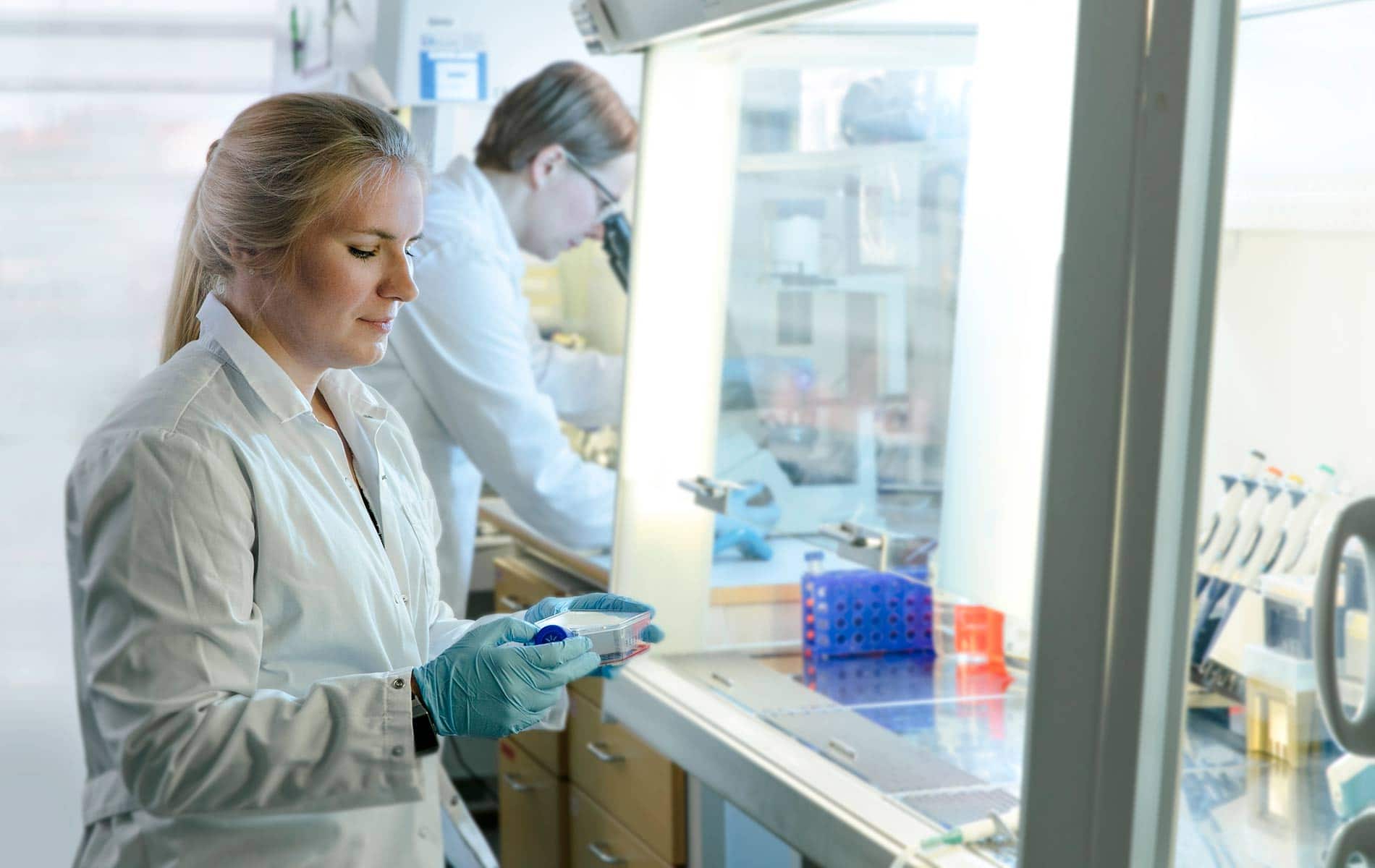Cancer Foundation’s major grants support colorectal and prostate cancer research
This year, the Cancer Foundation awarded grants of €6,5 million for cancer research. Major grants have been awarded for research on hereditary susceptibility to colorectal cancer and on diagnosing and developing treatment for aggressive prostate cancer.
The donations received each year by the Cancer Foundation have supported cancer research in many ways. A third of the foundation’s grants were awarded for research unrelated to specific types of cancer. A quarter of this year’s funding is being targeted at prostate cancer and breast cancer research.
Three-year major grants of €450 000 were awarded to the research teams headed by Professor Lauri Aaltonen at the University of Helsinki and Professor Steve Bova at the University of Tampere.
“The trend towards individualised cancer treatment is reflected in the funding. Research aimed at the early detection of cancer and clarifying tumour properties have come to the fore,” explained Jarmo Wahlfors, Research Director at the Cancer Foundation.
Lauri Aaltonen: seeking to explain the prevalence of colorectal cancer susceptibility
Academy Professor Lauri Aaltonen’s team at the University of Helsinki has researched hereditary intestinal cancer susceptibility for 25 years. Identifying hereditary tumour susceptibility has created techniques for early cancer detection and a greater understanding of tumorigenesis. The findings have benefited people at risk in Finland and other countries.
“Our recent finding relates to the effects of a toxin produced by certain bacteria called colibactin on the intestinal tract of intestinal cells.”
Aaltonen’s team has identified a possibly preventable environmental factor that causes the accumulation of gene mutations in colorectal cancer and its precursors.
“Our recent finding relates to the effects of a toxin produced by certain bacteria called colibactin on the intestinal tract of intestinal cells. This may prove to be a significant and common factor in the pathogenesis of cancer,” said Aaltonen.
With the major grant from the Cancer Foundation, Aaltonen aims to gain a deeper understanding of general susceptibility to colorectal cancer at the population level.
“We will combine information generated from the regulatory genome of tumours and information about gene variations that are overrepresented in cancer patients. This way, instead of just associations, we will get a real understanding of which details of genetic variation affect tumour susceptibility and why,” said Aaltonen.
Steva Bova: investigating high risk prostate cancer
About one in five men with prostate cancer develop an aggressive form of the disease. A study led by Steve Bova, Professor of Cancer Pathology at the University of Tampere, aims to differentiate [1] aggressive prostate cancers that require treatment from non-aggressive ones[2] . The goal is to find effective treatments for high-risk patients. The aim is to find effective treatments for high risk patients.
The slow progression of prostate cancer gives researchers time to develop treatment.
The study involves dozens of patients with metastatic prostate cancer whose cancer progression is monitored from the outset. Bova’s team utilises patient samples, radiological studies, and 3D cell culture models to find out what mutations are in the genome and how cancer cells are progressing. Based on the molecular properties of the cells, the aim is to find the right treatment for each patient. The method developed by Bova will subsequently be evaluated in clinical work with patients.
“The slow progression of prostate cancer gives researchers time to develop treatment. Our goal is to develop an effective method that can be used to tailor individualised treatment to each patient. This method could potentially be used to treat other cancers as well, says Bova, who has been researching prostate cancer since the 1990s. The ongoing research began in 2011 when Bova moved to the University of Tampere.
During 2020, the Cancer Foundation has supported cancer research with grants totalling €6,5-million. Research and dissertation grants were awarded to 80 researchers or research teams to the tune of EUR 6,4-million. In addition, 52 travel grants amounting to over €65 000 were awarded to cancer researchers in the spring.
The Cancer Foundation receives funds for cancer research solely in the form of donations. Through highly active fundraising work, the foundation has succeeded in greatly increasing funding for cancer research. Donations are obtained from bequests, regular monthly donors and the Pink Ribbon fundraising campaign.
Cancer Foundation 2020 grants for researchers.
Further information:
Research Director Jarmo Wahlfors, Cancer Foundation, tel. 050 410 1456, [email protected]
Professor Steve Bova, University of Tampere (currently in the USA), [email protected]
Professor Lauri Aaltonen, University of Helsinki, [email protected]

